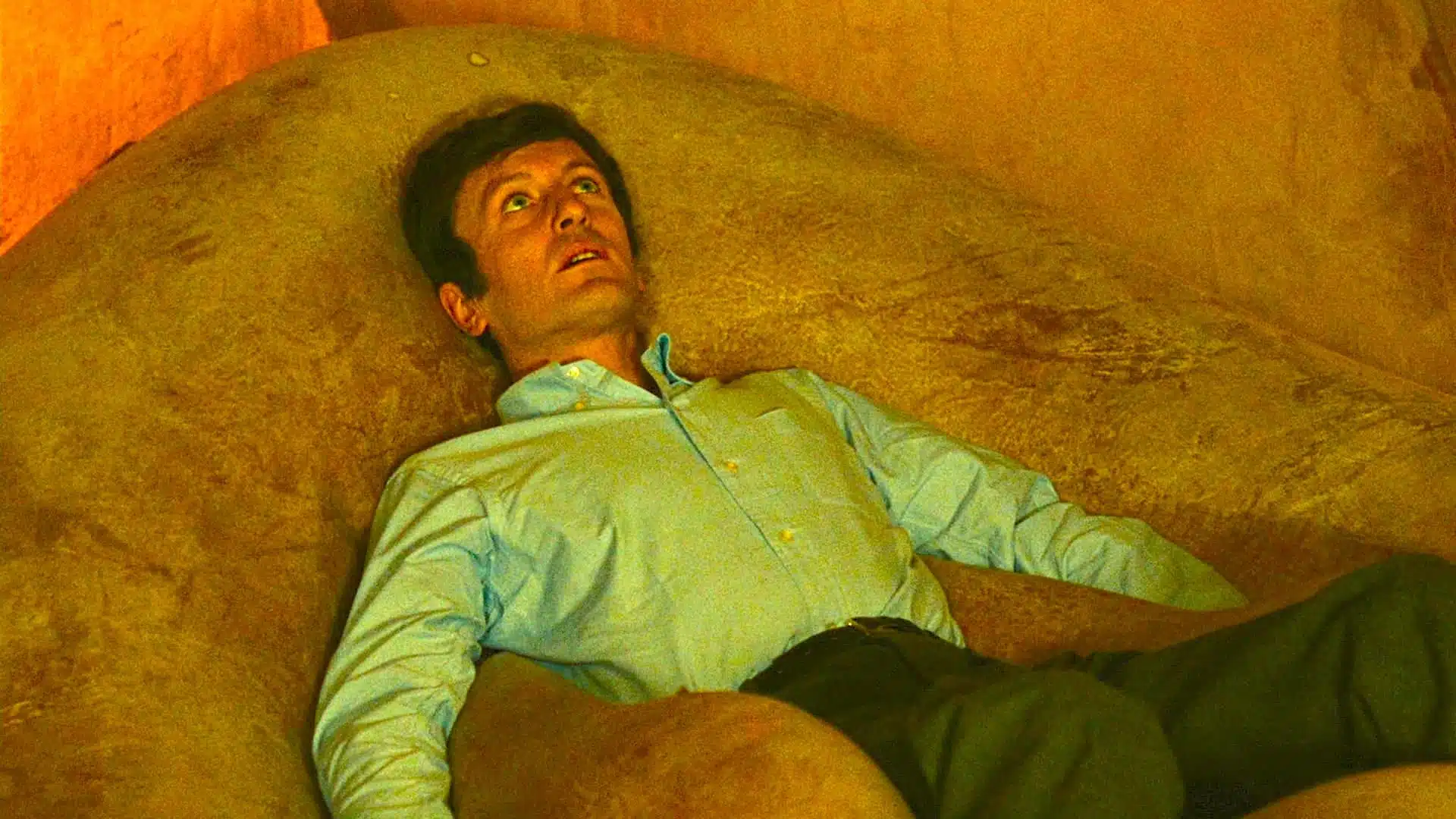Part modernist experiment, part sci-fi, part exploration of memory, Alain Resnais’s weird 1968 drama Je t’aime, je t’aime (aka I Love You, I Love You) is the place to go if the prospect of watching his more celebrated first two movies, the formally and formidably “difficult” Hiroshima Mon Amour and Last Year at Marienbad, give you the collywobbles.
It’s clear even before the film gets going that something odd is going on. The massive titles in bright red and the haunting, ethereal choir singing over the opening credits eventually give way to opening scenes in which Resnais’s framing is also doing odd things – too close, not close enough, it’s all quite unsettling.
We immediately meet Claude (Claude Rich), a young man being recruited into a time-travel experiment by a shadowy outfit who want to send him back in time one year, but for only one minute. They’ve had success with mice, the men in white coats say, or they think they have. But mice can’t speak and so they’re not sure. Claude can and so will be able to report back when he returns to the present. Claude has recently attempted suicide and so, the boffins reason, won’t mind too much if it all goes wrong and he doesn’t make it back alive. Claude doesn’t seem to be too bothered either and takes the gig.
Off he goes, into the time machine, which looks like a giant inflated brain, and the experiment at first seems to work. Suddenly we are back in Claude’s past, one year ago. There he is swimming in the sea while his beautiful girlfriend, Catrine (Olga Georges-Picot), suns herself on the beach. Then he’s back in the machine. Then back in his snorkel in the sea. On the beach. Back in the sea. In the time machine. Back in the sea. Something is clearly going awry, and instead of Claude having his allotted minute in the past and then re-appearing back in the present, he appears to have got stuck in a non-linear version of his own past, one second on the beach, then back in the water. More of Claude’s past starts being folded in – he’s on a production line, then he’s suddenly taken a management position. He’s meeting Catrine, then meets another woman called Wianka, and another, and another.
It’s a life done as a flickerbook but with all the pages jumbled – in moving images a reworking of the idea behind Marc Saporta’s 1962 modernist novel Composition No 1, a book in a box with pages you could read in any order. Or that’s the initial impression. In fact Resnais is taking us through Claude’s life thematically rather than chronologically, using the rhythms of the edits (by Albert Jurgenson and Colette Leloup) to provide dramatic highs and lows.
The fragmented structure allows Resnais and Jacques Sternberg (who wrote the original novel) to throw in some random ruminations as light relief – maybe humans exist on this planet merely to serve cats, Catrine muses at one point, à propos of nothing at all.
But in the main it’s an examination of a man’s essence, his soul, as he abandons the simple life and sets his sights on worldly wealth and pleasure – “for what shall it profit a man if he shall gain the whole world and lose his soul” etc.
It’s intensely cinematic and technically superb. And thanks to the way the edit collages and montages meaning from what look like disparate “scenes from a life” it’s a lot easier to watch than the description makes it sound. It’s skillfully acted too, particularly by Rich, who has to work in staccato scenes with no emotional continuity.
Down the line Michel Gondry used some of these ideas in his Eternal Sunshine of the Spotless Mind, but there’s also an echo of its fragmented make-up in Groundhog Day, and the examination of emotional hinterland as if it were a crime scene to be reconstructed would later resurface in François Ozon’s 5X2. Pushing even further, you could even call it a multiverse movie, albeit one that offers repetition without variation. No redemption either. Claude has made his bed in the past, and now, no matter how often he revisits it, he ends up in the same doom loop. And one entirely of his own making.
Je t’aime, je t’aime – Watch it/buy it at Amazon
I am an Amazon affiliate
© Steve Morrissey 2023


